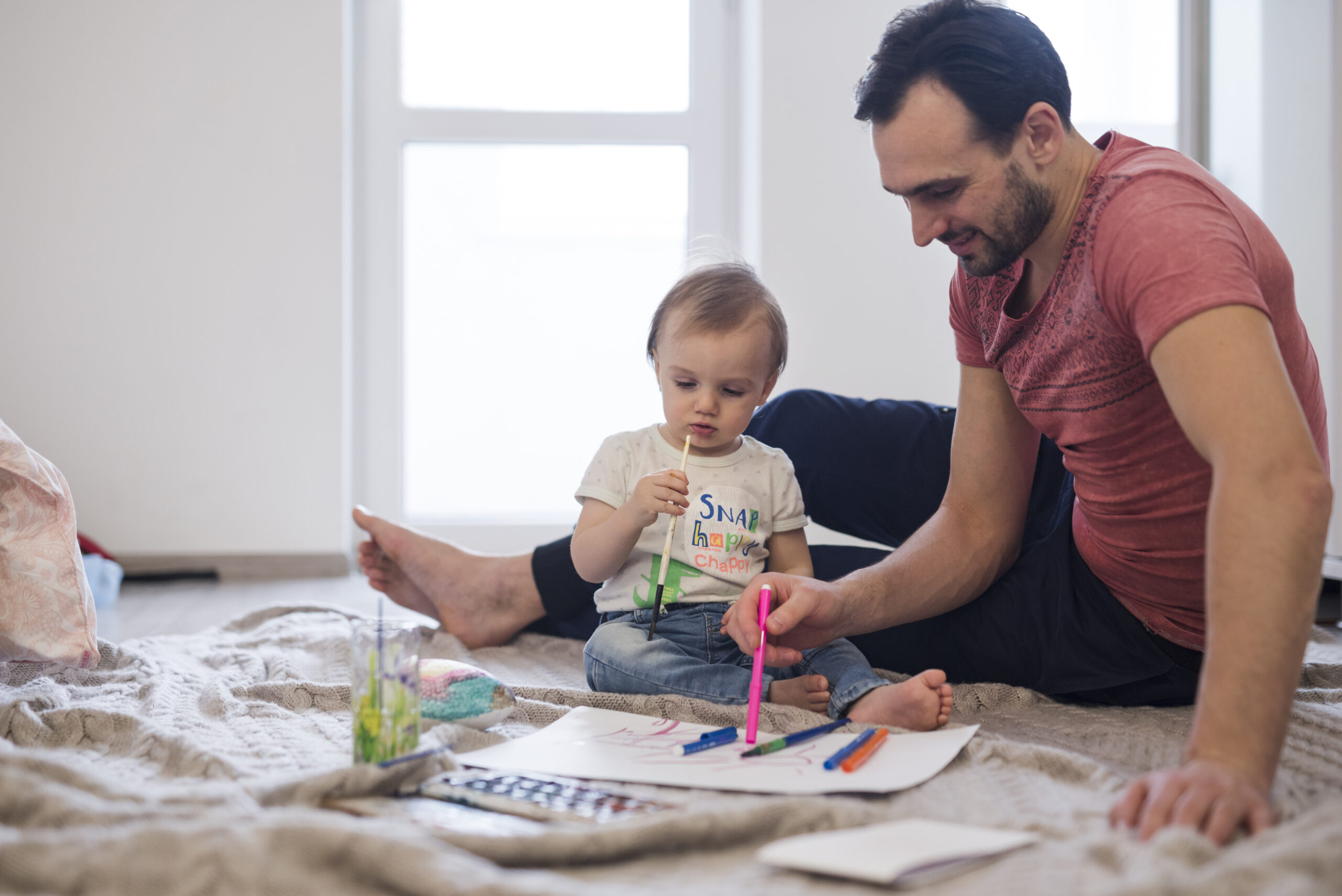Fatherhood is not just about fulfilling a traditional role—it’s about shaping a child’s emotional and cognitive development in ways that are both profound and lasting. Studies have shown that the presence of a male role model, whether it’s a father or another nurturing male figure, has a positive impact on a child’s brain development. But what happens when a dad isn’t in the picture, and how can we create a fatherhood experience in different family dynamics, such as female-led relationships?
The Impact of Fatherhood on Brain Development
The involvement of a father or father figure in a child’s life offers unique contributions to their growth. Fathers often encourage more risk-taking and independence, fostering problem-solving skills and resilience. These experiences stimulate brain regions responsible for social behavior, cognitive flexibility, and emotional regulation. For instance, a father’s rough-and-tumble play helps children develop spatial awareness and emotional control, which are critical for brain development.
Moreover, research indicates that children with an active male presence tend to perform better academically and have fewer behavioral problems. Their brains are wired to benefit from both maternal nurturing and the complementary parenting style that fathers often bring to the table, such as a balance of challenge and support.
The Absence of a Father Figure
When dads aren’t part of the equation, whether due to separation, loss, or other circumstances, children can still thrive with intentional parenting. However, the absence of a father figure can leave gaps in certain developmental areas. Research suggests that children growing up without male role models may face challenges with emotional regulation and social behavior. This doesn’t mean that children raised in single-mother households are at a disadvantage—it simply highlights the importance of ensuring a variety of nurturing relationships in a child’s life.
In the absence of a father, extended family members, family friends, or mentors can step in to offer guidance, stability, and the encouragement that children need. Positive role models, both male and female, are crucial in creating a nurturing environment that supports a child’s holistic growth and family well-being.
Fatherhood in Female-Led Relationships
In female-led families, creating a fatherhood experience is about balancing different aspects of parenting to ensure children receive the benefits that both genders traditionally offer. This may involve including trusted male figures in the child’s life, such as uncles, grandfathers, or close family friends who can play a supportive, nurturing role.
But just as important is recognizing that gender is not the only factor in successful parenting. Conscious parenting—where both parents work together to provide love, structure, and emotional intelligence—can replicate the dynamics traditionally associated with a father. Children can thrive in female-led households, particularly when their environment fosters open communication, emotional support, and diverse role models.
Practical Tips for Enhancing Fatherhood Involvement
Whether you’re a dad looking to deepen your relationship with your child or a mom in a single or same-gender household trying to ensure your child experiences the benefits of male role models, here are a few tips:
- Engage in Play: Active play, especially rough-and-tumble or physically challenging activities, helps children develop emotional resilience and problem-solving skills.
- Be Present: Even if life is busy, make sure you carve out time for parent-child bonding. It doesn’t have to be extravagant—simple moments like reading a bedtime story or going for a walk together can make a big impact.
- Model Emotional Expression: Encourage open conversations about feelings. Fathers, in particular, can help break down the stereotype that boys shouldn’t show emotion, allowing children to grow up emotionally healthy and self-aware.
- Foster Independence: Dads often naturally encourage their children to take risks and try new things. This support helps develop confidence and a strong sense of independence.
Final Thoughts
Fatherhood matters because it shapes the way children navigate the world—physically, emotionally, and cognitively. Whether a child is raised in a traditional household, by a single mom, or in a female-led family, the presence of nurturing and diverse role models plays an irreplaceable role in their development.If you’re looking for more insights on parenting, including tips on fostering healthy family dynamics and empowering your parenting journey, don’t forget to follow us on Instagram and YouTube. We offer valuable resources that will support you as you guide your child’s growth in today’s complex world.






